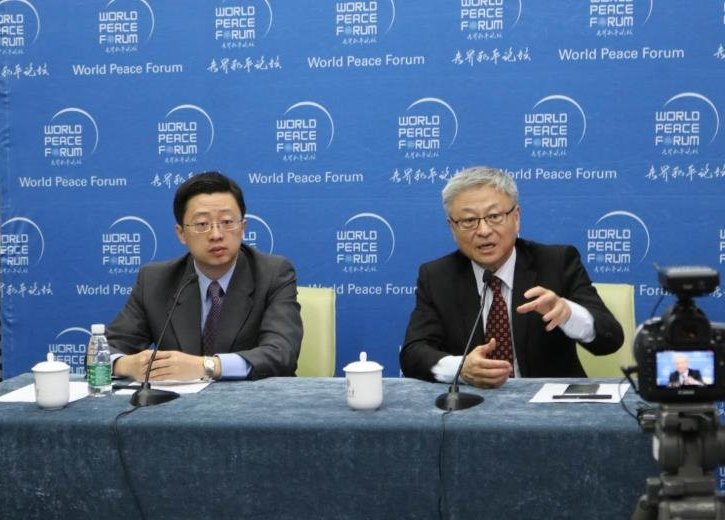Trade war not driven by ideology, says director at Tsinghua University
By Chen Yu | chinadaily.com.cn | Updated: 2018-07-13 09:38
Editor’s note: Amid the deepening China-US trade war, Professor Yan Xuetong, director of the Institute of International Relations at Tsinghua University, shared his views with chinadaily.com.cn on the nature of the trade war, how other countries should react to the situation, and his interpretation of Trump’s leadership style. At the end of the interview, Professor Yan talked about his understanding of the theme of this year’s World Peace Forum.

CD: Last Friday, the US imposed tariffs on $34 billion worth of Chinese products and China has responded with a 25 percent tariff on $50 billion worth of US goods. So there have been worries and concerns the consequences the trade conflicts between US and China could bring about. How do you interpret this situation? What could be the consequences of the trade war?
Yan: The exact consequences are hard to predict. But the worry is that the trade conflicts will spill over into the financial sector and ultimately set off a global financial crisis.
CD: If we take a step back and look around, we will see it’s not just China that has been involved in the US trade wars. The US is waging trade wars on multiple fronts, targeting allies and rivals. What is the nature of the trade wars?
Yan: The nature of the trade war is the changes in today’s interest structure, rather than an ideology competition. That is to say, we shouldn’t analyze the situation using Cold War mentality and analyze international affairs in an Eastern-block versus-Western-block way. Today’s situation is mainly motivated by the countries’ pursuit of secular interest. In a few years, people will coin and adopt new concepts to replace the Cold War mentality and concepts.
CD: How should countries respond to the current trade wars in order to protect their interests and prevent disruptions to the global economic order and financial market?
Yan: Ideally, the countries should work together to maintain the current world order. But in reality, all the major powers have their own interests to protect and pursue. So the most realistic approach would be for each country to act in its best interest. Under the current circumstance, a multilateral organization won’t work for the lack of an adequate leadership.
This situation reminds me of of Chinese Warring Times when the then-leading state Qin was in dominance, the other six states did not always fight as an united front, but fought on their own and for themselves.
Today, we should understand why those states did not form a united front, and it is because that they had their own interest to pursue. Just as today, in the face of trade war, the major powers should act in their country’s best interest.
And from China’s perspective, it is vital to try to contain it within the trade field and don’t let it escalate into a model conflicts or an ideology competition.
The Chinese government needs to publicly and repeatedly stress the point that China does not export ideology.
























